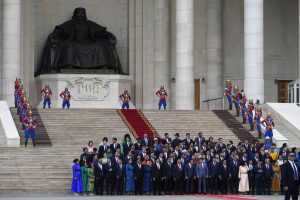Mongolia’s old guard from the communist era, the Mongolian People’s Party (MPP), secured a victory in the 2024 legislative election, marking their third consecutive term. The MPP’s leader, Prime Minister Oyun-Erdene Luvsannamsrai, not only led his party to victory but also brought about crucial changes that could shape the future of Mongolia.
The recent election was a historic milestone for Mongolia’s young democracy, characterized by several firsts.
The 2024 election was the first following constitutional reforms in 2023 that dramatically expanded the parliament from 76 to 126 seats. The June 28 vote reflected a significant shift in the nation’s political landscape. For the first time, there was a substantial increase in the representation of women in parliament, with women now holding 25 percent of the seats. The election also marked the first time that two disabled individuals were elected as MPs, and it saw the historic election of a Kazakh woman to parliament. These changes have resulted in a younger and more diverse group of representatives, signaling a move toward more inclusive governance.
After the elections, the new parliamentarians consolidated into a grand coalition that includes not only the MPP, which topped the tables with 68 seats, but also their opposition, the Democratic Party (42 seats), and the emergent HUN Party (eight seats). This unprecedented alliance resulted in a unified government that brought together two former rivals and a significant third party.
In an unprecedented show of unanimity, 103 out of 104 parliamentarians present voted to have Oyun-Erdene lead the government once again. The lone “no” vote came from former journalist Lodoisambuu Chuluunbileg from the Democratic Party.
The grand coalition may appear to be a strategic effort to foster stability and cooperative governance by incorporating diverse perspectives to tackle Mongolia’s socioeconomic challenges. However, critics, particularly from local civil society and urbanite Mongolians, argue that this coalition merely perpetuates the MPP’s uncontested grip on power, potentially pushing the government toward more authoritarian rule without sufficient oversight.
The true impact of this unified Mongolian political government remains uncertain. Will it succeed in promoting healthy discourse, diversity, and good governance while effectively managing Mongolia’s global partnerships amid a complex geopolitical landscape, or will it regress into old patterns, further deepening public disillusionment with politics?

































